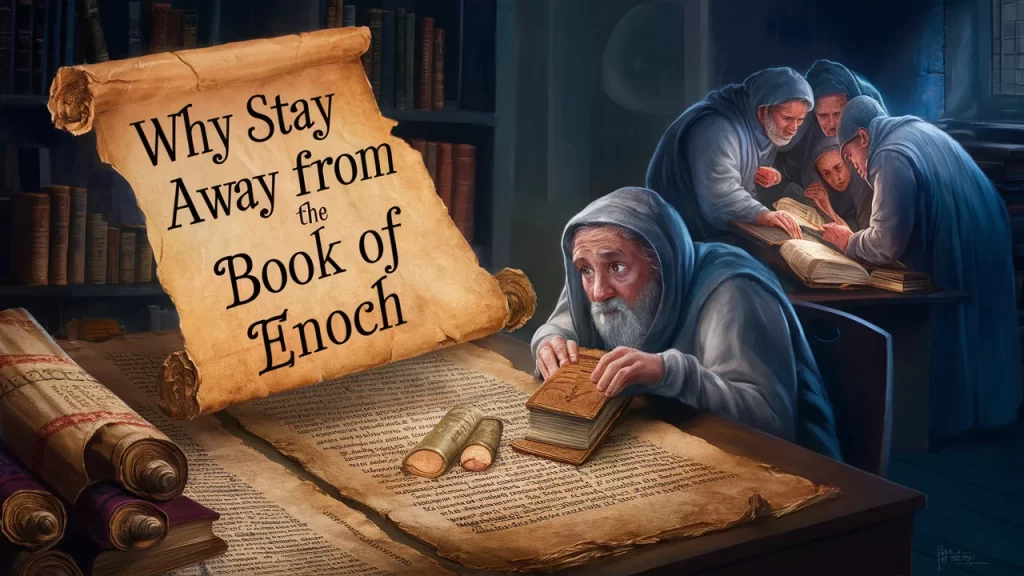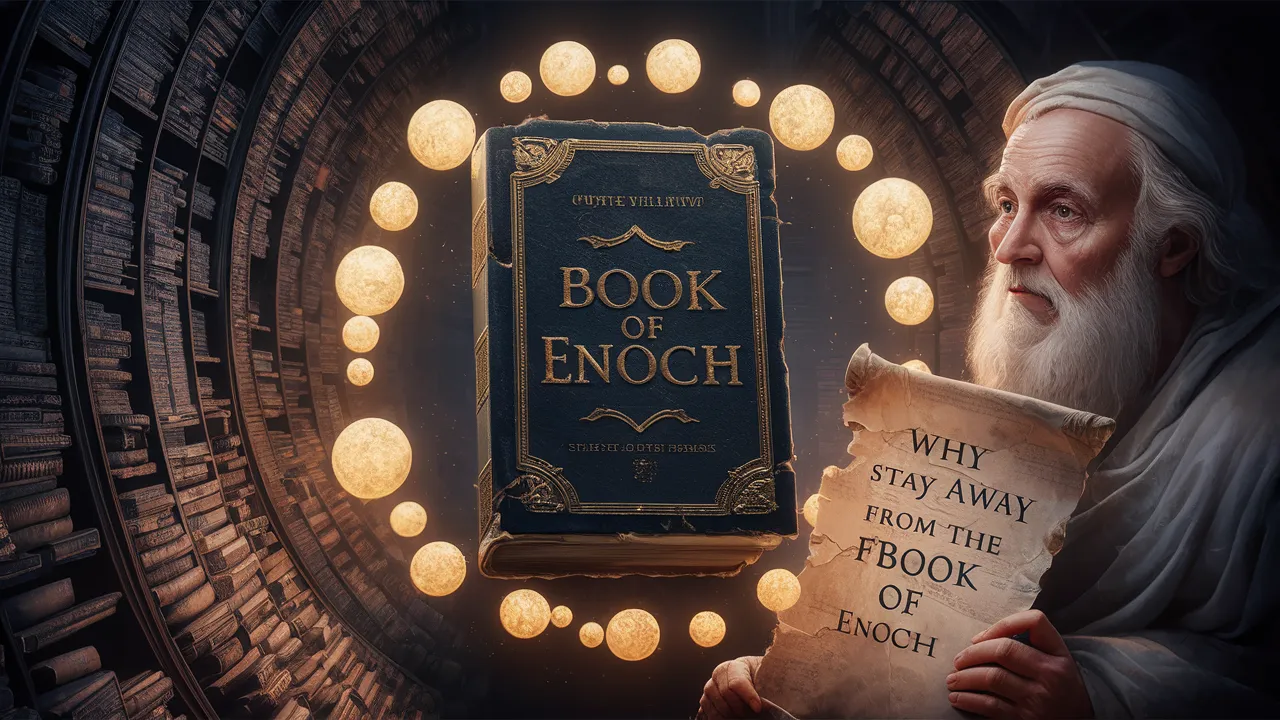Table of Contents
In the realm of ancient texts and religious literature, the Book of Enoch stands out as a controversial and often misunderstood work. While some view it as a valuable historical and spiritual resource, others caution against its use and dissemination.
In this article, we delve into 8 compelling reasons why individuals and communities may choose to exercise caution when engaging with the Book of Enoch.
Who is Enoch?
A prominent person in sacred scriptures such as the Bible and the Quran is Enoch. He was Noah’s great-grandfather, according to Genesis 5:24, and lived for 365 years before God took him away. His abrupt departure has provoked conjecture and analysis. Apocryphal books like the Book of Enoch, which present Enoch as a righteous person who received revelations from God, also feature prominently on Enoch.
Although these texts aren’t considered canonical by many religious traditions, they provide insights into ancient Jewish and Christian beliefs. Enoch’s story continues to fascinate scholars and believers alike, contributing to ongoing discussions about spirituality and faith.
Why Stay Away from the Book of Enoch? 8 Reasons

Here are 8 reasons to stay away from the book of Enoch below:
Questionable Authorship and Authenticity
The first reason to approach the Book of Enoch with skepticism is its questionable authorship and authenticity. Unlike many other biblical texts, the authorship of Enoch remains uncertain, with scholars debating its origins and dating. This lack of clarity raises doubts about the book’s reliability as a source of divine revelation.
Non-Canonical Status
Another factor to consider is the non-canonical status of the Book of Enoch within mainstream religious traditions. While some early Christian communities regarded it highly, most contemporary Christian denominations did not include it in their official canons. This exclusion suggests a degree of caution regarding its theological significance.
Varied Interpretations
The Book of Enoch is known for its complex and varied interpretations. Different religious groups and scholars have offered divergent readings of its contents, leading to confusion and disagreement about its meaning and relevance. This diversity of interpretations can make it challenging to discern the book’s intended message.
Inconsistencies with Canonical Scripture
Critics of the Book of Enoch point to inconsistencies between its teachings and those found in canonical scripture. These discrepancies raise concerns about the book’s theological coherence and compatibility with established religious doctrines. Consequently, many believers opt to prioritize canonical texts over supplementary works like Enoch.
Mythological and Apocryphal Elements
Enoch contains mythological and apocryphal elements that depart from the style and content of canonical scripture. Its inclusion of fantastical narratives and esoteric concepts can blur the line between myth and history, making it challenging to discern literal truth from symbolic allegory.
Potential for Misinterpretation
One of the most significant risks associated with the Book of Enoch is the potential for misinterpretation. Its cryptic language and mystical imagery lend themselves to a wide range of interpretations, some of which may veer into theological error or spiritual confusion. This ambiguity underscores the importance of careful scholarly analysis when engaging with Enoch.
Lack of Endorsement by Religious Authorities
The absence of endorsement by religious authorities further undermines the credibility of the Book of Enoch. While individual scholars and believers may find value in its teachings, the lack of official recognition from religious institutions suggests a degree of skepticism or caution regarding its status and authority.
Focus on Canonical Scripture
Ultimately, the most compelling reason to exercise caution with the Book of Enoch is the emphasis on canonical scripture within mainstream religious traditions. While supplementary texts like Enoch may offer insights and perspectives, they should not supplant or overshadow the central teachings of recognized scripture.
People also ask
Why do we reject the Book of Enoch?
Many branches of Christianity reject it due to its non-canonical status and divergent theological views.
Why was Enoch taken away?
The Bible states that Enoch was taken by God without experiencing death, but the exact reason is not specified.
Is the Book of Enoch OK for Christians to read?
It varies; some Christians find it informative, while others caution against its non-canonical nature and theological differences.
What is the lesson of the story of Enoch?
Enoch’s story emphasizes righteousness, faithfulness, and walking closely with God, inspiring believers to pursue a similar spiritual journey.
Why is the Book of Enoch So important?
The Book of Enoch is important for its influence on ancient Jewish and Christian thought, its apocalyptic themes, and its references in the New Testament, despite not being included in the canonical Bible for most Christians.
Final Words
In Final Words, while the Book of Enoch remains a subject of scholarly interest and spiritual inquiry, it is essential to approach it with discernment and caution. Its questionable authorship, non-canonical status, varied interpretations, inconsistencies with canonical scripture, mythological elements, potential for misinterpretation, lack of endorsement by religious authorities, and emphasis on canonical scripture all contribute to the need for careful consideration when engaging with its content.

